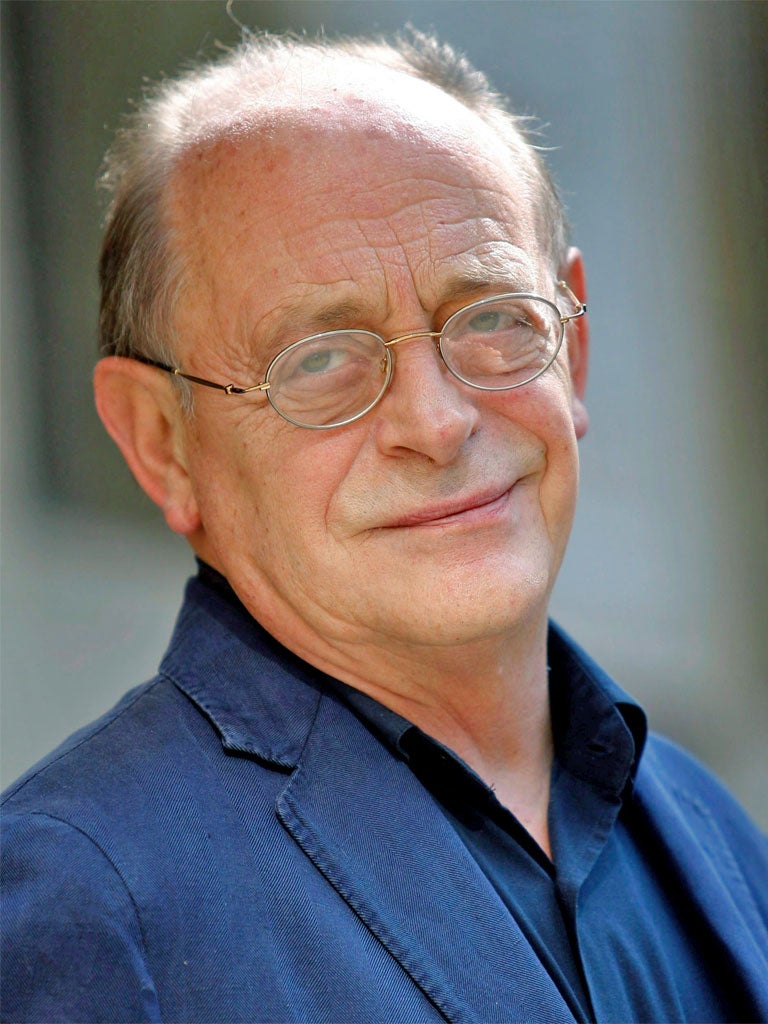Antonio Tabucchi: Novelist who became a fierce critic of Berlusconi

Antonio Tabucchi was a leading Italian novelist, intellectual, academic and columnist, widely known to his countryman as a ferocious critic of former Prime Minister Silvio Berlusconi. He regularly accused Mr Berlusconi of using his political power to further his own interests. He was also an internationally-renowned expert and professor of the literature of Portugal, which he considered his second home and where he died of cancer aged 68.
Among Tabucchi's best-known novels, several of which were filmed and some translated into 40 languages, was Sostiene Pereira (Pereira Maintains, 1994), the story of an elderly, obese Catholic widower who edits the culture pages of a small evening paper in 1938 Lisbon. It was the era of the dictatorship of Antonio Salazar and allowed Tabucchi to explore the theme of media self-censorship under an authoritarian regime before his protagonist, Pereira, has a belated political awakening and becomes a symbol of freedom. The novel quickly found resonance in Italy among opponents of Berlusconi and was made into a film by Roberto Faenza in 1995, starring Marcello Mastroianni.
Tabucchi continued his broadsides against the Prime Minister in columns in the newspapers La Repubblica and Corriere della Sera, in Spain's El País, and indirectly in his 2004 novel Tristano Muore (Tristano Dies), the story of a dying old man, riddle with gangrene, who narrates his life to a friend, "a sort of apostle."
An earlier novel, Notturno Indiano (Indian Nocturne, 1984), described by Salman Rushdie as "beautiful, dreamlike," was made into a film (Nocturne Indien) by Alain Corneau in 1989 starring Jean-Hugues Anglade as the protagonist, Rossignol, who arrives in Bombay to search for a missing friend, but finds himself increasingly taking on his friend's identity on a journey via Madras and Goa. In 1987, the novel won Tabucchi France's Prix Médicis for best foreign work and he was twice nominated for the Man Booker International Prize.
All of Tabucchi's novels, a few of which he wrote in Portuguese, revolve around ordinary people whose lives are transformed by travel, chance meetings or internal doubts. "I've always been drawn to tormented people full of contradictions," he once said. "The more doubts they have the better. People with lots of doubts sometimes find life more oppressive and exhausting than others, but they're more energetic. I don't go for people who lead full and satisfying lives."
In 1993, in the wake of Ayatollah Khomeini's 1989 fatwa against Rushdie, Tabucchi was a founding member of the Strasbourg-based InternationalParliament of Writers, which aimsto protect freedom of speech and publication, as well as the physical safety of writers.
Antonio Tabucchi was born in Nazi-occupied Pisa in September 1943, two weeks after Italy had surrendered to the allies. He liked to note that he was "the only son of a horse trader." When he was still an infant, as a result of the devastating allied bombing of his Tuscan hometown, he moved into his grandparents' home in the nearby village of Vecchiano, where he grew up. He graduated from the University of Pisa in 1969 with the thesis Surrealism in Portugal. He had already, by then, discovered the early 20th century Portuguese poet and writer Fernando Pessoa, who had died in obscurity and whose works Tabucchi would later translate into Italian. He fell in love with Portugal – and a girl from Lisbon, Maria Jose de Lancastre, who became his wife and fellow-translator.
His debut novel, in 1975, was Piazza d'Italia which, he said, sought to chart "a short history of the last hundred years of Italy in tragicomic style" by exploring three generations of Tuscan anarchists. But it was Indian Nocturne, in 1984, that put him on the global literary map. From 1978 to 1987 he lectured in literature at the University of Genoa and in 1991 he became Professor of Portuguese language and literature at the University of Siena, splitting his time between there and Lisbon and reading favourite writers such as Philip Roth ("a giant") and the Polish poet and Nobel literature prize winner Wislawa Szymborska, who died last month.
In Sogni di Sogni (1992) and Gli ultimi tre giorni di Fernando Pessoa (1994), published in English as Dreams of Dreams and The Last Three Days of Fernando Pessoa, Tabucchi wrote: "Like a blazing comet, I've traversed infinite nights, interstellar spaces of the imagination, voluptuousness and fear. I've been a man, a woman, an old person, a little girl, I've been the crowds on the grand boulevards of the capital cities of the West, I've been the serene Buddha of the East, whose calm and wisdom we envy. I've known honour and dishonour, enthusiasm and exhaustion ... I've been the sun and the moon, and everything because life is not enough."
Phil Davison
Antonio Tabucchi, writer; born Pisa 24 September 1943; married Maria Jose de Lancastre (two children); died Lisbon 25 March 2012.
Subscribe to Independent Premium to bookmark this article
Want to bookmark your favourite articles and stories to read or reference later? Start your Independent Premium subscription today.

Join our commenting forum
Join thought-provoking conversations, follow other Independent readers and see their replies